Anon Q&A: Andrew Niccol and Clive Owen discuss our lost privacy
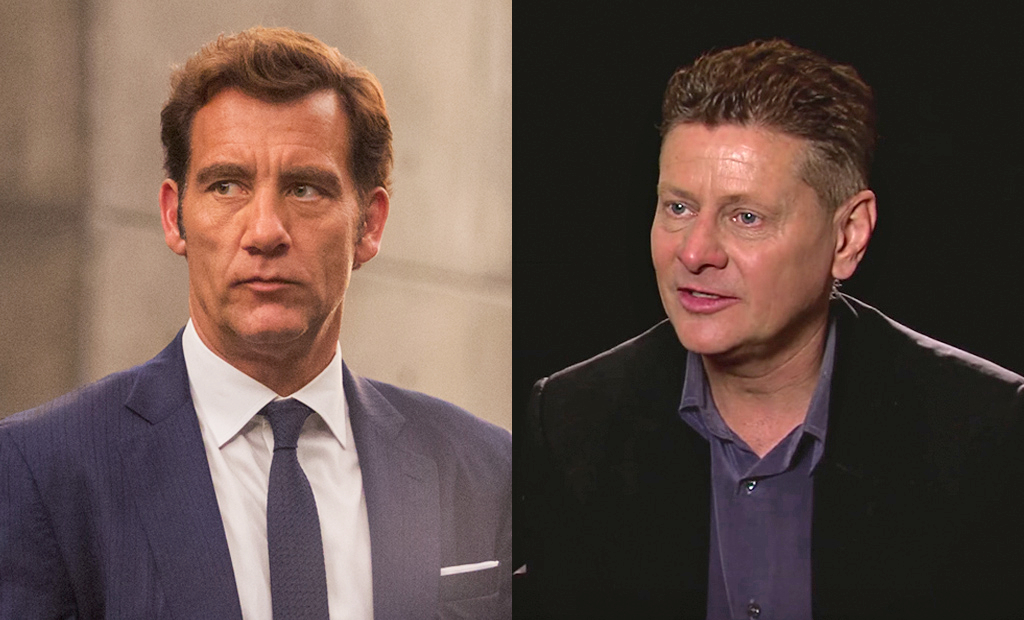
A sci-fi thriller set in a parallel present, Anon is soon to be released worldwide across cinemas and streaming platforms. The movie is based on the overflowing of personal data into the public sphere, used and abused by the authority in control. How would it be if we could scan through a person’s life without having to check on their social media profile, but just by looking at him/her? With advanced technology implanted in the eyes and memories recorded in universal cloud storage, the people in the near-future world created by Andrew Niccol seem to have gone one step beyond the current controversy surrounding the sharing of metadata.
With all the recent revelations regarding Cambridge Analytica and the fresh discussion sparked over the selling of personal details through online platforms, it looks like there couldn’t be a better time for such a project. Clive Owen is Sal Friedland, a first-class detective involved in the research of a potential serial killer (Amanda Seyfried), a skilled hacker who erases her data trail in order to trick her victims.
Director/writer Andrew Niccol and actor Clive Owen discussed our lost right to privacy, humans’ relationship with technology and the creepy intrusiveness of Google at an exclusive preview screening in London.
What a timely release this is for Anon right now, with everything that is going on in the world!
Andrew Niccol: I wrote this movie quite a while ago, and I wanted to do a film about privacy for a long time. We are given this false choice. They say: “if you have nothing to hide, nothing to fear, why not sharing with us this information?” But I prefer the way the girl says in the film: “it’s not that I have anything to hide. I have nothing I want you to see,” which I think is a different thing. In this time we realise how much privacy we are giving away, just for convenience.
There are so many layers in this movie. If we put what the girl says – “I have nothing I want you to see” – in relation to our current lives, I am almost surprised by such a strange behaviour! Today, if you don’t have a profile on social media, if you don’t engage – encouraged as we are to post anything and everything – it seems very strange.
AN: Not everyone is a complete extrovert. There should be some kind of discussion about how much privacy people are taking from us and what they do with that. We knew that Facebook had our cell phone numbers; but we really didn’t know that they had cell phone numbers of all your contacts, which passed a line for me.
When you first came into this movie, and read the script and spoke with Andrew, what was your initial reaction?
Clive Owen: Andrew and I have worked together a number of times over the years. I am a big fan of this man. I think that every film he does is about a huge, relevant, important subject we should be looking at. Andrew called me and told me he got this script and said: “it is simply about a battle on privacy that we have already lost”. It is just incredible how much information we are giving to people every day. I notice now every time you buy anything in any store, they want information from you: they want your email, they want your number, etc. Every time we go on the internet and we are looking at something, we are giving away an awful about who we are, where we are. It has all crept upon us, without any debate or discussion. I come from Coventry, and I remember the first CCTV camera being put in there, and the uproar coming from everybody – people saying “it is a violation”– and look at where we are now!
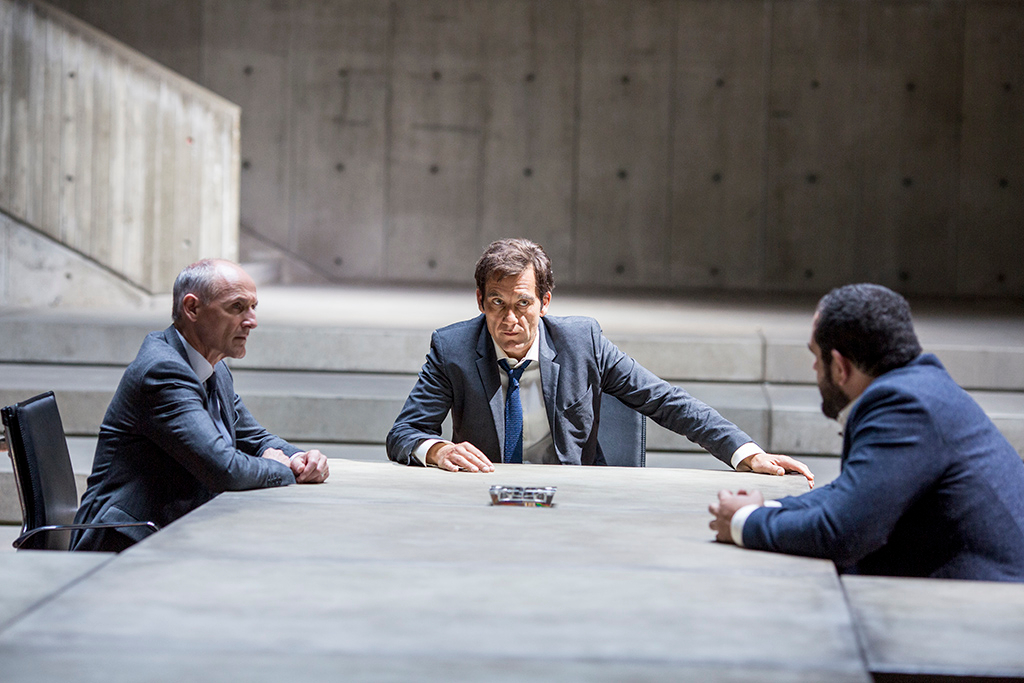
It is undeniably a sci-fi movie.
AN: Actually, I’d like to disagree with this. I don’t see it as futuristic, but almost as a parallel present. Clive did a sort of narration at the beginning – to say how it developed the future, etc. – and he did it very well, but I took it out! Because I realised as soon as Sal is walking down the street, it doesn’t matter that he is not looking at a phone – it doesn’t matter. People walking on the street are taking pictures, they are all on social media, they stare at their screen. We all know: we are in exactly the same situation. If you go to a concert, it’s a kind of a hellish thing now, because all you see is a sea of cameras. People cannot just be, they have to record it. They wouldn’t even look back on it, but they have to record it nevertheless.
Would it be fair to draw a comparison between this film Anon, your work in Gattica and The Truman Show? In so much as they are set in the near-future but they all deal with very real events happening in the world today. What is it that fascinates you in the way humans interact with technology?
AN: I like the ambiguity of it: no technology is all good or all bad, it’s all about how we use it. These are all very useful tools, but at the same time, it’s a sort of cliché: you don’t pay for Google and you don’t pay for Facebook – that means you are the product.
On one hand, Anon very much comments on the current situation. On the other hand, you have this noir element going on. How do you approach the character of Sal Friedland: he is a cop, his job is to protect, but there is also a sort of macabre glee when he gets into investigate.
CO: When I first started to talk with Andrew, I was trying to understand this visual concept, and I thought he did a brilliant job in doing this sort of retro kind of future. My character, the whole thing is the sort of thing we see everywhere: all the world is now watching crimes, and there is something beating down about it. But but he starts to immerse himself into this story, into this person, and he also finds it attractive – this opting out. There is a very cool shot when you see I turn everything off. It’s like I just want some peace, some privacy. I like that. The noir element was very strong in the writing.
For you, Andrew, what was it that you saw in Clive that made him perfect for this role?
AN: There is something in Clive that is a sort of throwback. I imagine him from another age, and that’s what makes him classic. And there is that been there, done that quality, this default expression when he looks at you: kind of amused/disdained. Without saying a word, he says: “how you are really an idiot?” And I love the juxtaposition of a noir detective story and a detective using ultra-modern technology.
In terms of the technology you bring to this film, I feel you utilised every frame. There is something so distinctive about the way it looks and the feelings it evokes. Can you tell us something about creating these worlds – these near futures – that have to be plausible enough for an audience to go “this isn’t miles away from where I am now”.
AN: Yes, I don’t want to give the feeling of a far distant future, because, hopefully, it does have something to do with you. If you go back to Gattaca, if you leave a trace of yourself it can give you away, and in time, there is no graffiti in time, because who is going to spend time literally scrolling down on a wall? All of these things come out of the story.
How did you find the experience of shooting Anon, Clive? There are a lot of different techniques: how you gather information, how you make calls, how you enter the Ether. We see a lot of point-of-view shots; how much of an explanation did you get?
CO: it was a big part of the movie. I feel one can really underestimate the job that Andrew has done in terms of the clarity of the storytelling. It is a complex visual movie. The fact that I can talk at you and at the same time replay somebody else’s life, it is visually complicated. But there is an amazing clarity in the storytelling, in the sense that it is not getting frustrating: it is really, really clear and that’s down to this man, obviously knowing what was going on and how to do it.
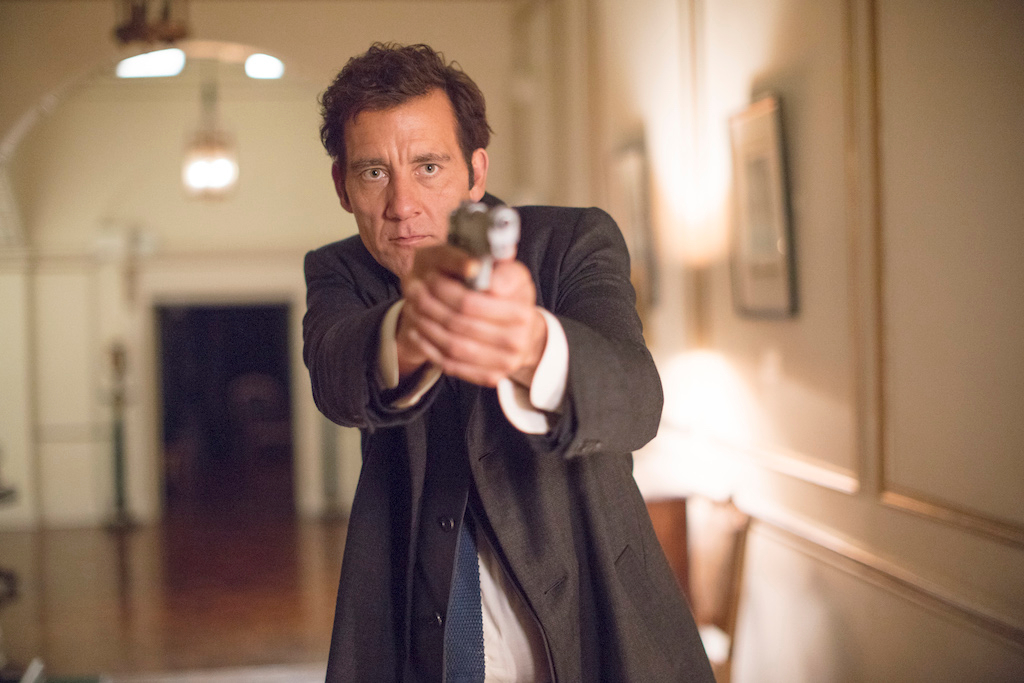
Anon is premiering at the same time on Sky cinema, in theatres, on Netflix. Did the fact that it is going straight into the audience’s homes inform your creative process? Don’t you think there is a kind of irony in its premiering in many parts of the world – and consequently using a service that relies on big data?
AN: I think there is a slight irony because in the movie there are no screens at all – whether on the phone or tv. I think it is good people have the opportunity to watch it in their own way. For me, it is just about the story.
You are not on social media at all, Clive. Did that in any way – when it comes to a movie like this – influence the script or even the performance?
CO: No, it is only a personal choice. It is not something that really appealed to me. I am a kind of work person, and when I am away from that, I like to keep myself away. I have no appetite whatsoever for constantly perpetuating myself other than to do my work. I understand that that is a public thing and there are things attached to that. But outside of that, there is no interest in me in putting out my persona in any other way.
AN: there is something linked to social media that this movie made me understand: in few films, it is ok to freeze on a frame. If you watch it, by freezing some of the frames, you’ll see every bio is very legible. All the data had to be actually written: when the characters look at somebody, every bio comes out as a Wikipedia page. I kind of love the idea that all of that data was readable.
How much time did you spend writing each of those Wikipedia pages?
AN: It’s funny because it looked fine on the script, on the page, and then I realized every time he looks at someone I had another bio to write!
Clive’s character throughout the movie is smoking a real cigarette, but as it is set in the future, why not an e-cigarette? And also, how did you pick the term Ether?
AN: For the term Ether, I think it just came out as that expression. And for the e-cigarette: when you go into the future you can take a lot of license with things. If you look at the cars, for instance, they look retro, but if you read the file attached, it has got hydrogen fuel. If you go to one of those freeze-frames it actually tells you what constitutes the cigarette: he is smoking herbal cigarettes.
Going back to Cambridge Analytica, since you finished the script or finished the film, is there anything that you would have changed in light of the recent revelation?
AN: No, I think there was always a cautionary tale with or without Facebook. Cambridge Analytica didn’t surprise me at all. You all know of course that Gmail account emails are constantly read? And they even came to a point when they thought they might be able to answer these emails for us. Thinking about Google, there was a funny story. I have a friend, a neighbour of mine, who has a daughter who loves My Little Pony. He handed the phone to his daughter, she looked at this My Little Pony on the phone and he then couldn’t stop these pop-ups coming of this toy. He went to the Google’s headquarters asking ‘Can you fix it?’ and they answered they couldn’t because the algorithm is too strong: it just has to die of natural death.
We are now weekly reading about the debate of the right to be forgotten. This is the pinnacle of the movie: the right to be forgotten, to live outside. I am assuming, by now, Andrew, that you very much identify with the girl’s point of view.
AN: She is more me; she is the hero, maybe the hope. There are measures and countermeasures – she found a way to erase those memories. I love that, actually, she hides in plain sight: she puts a fraction of herself in everybody, and only the algorithm can put together the different frames and create her identity. There is another interesting Google fact: it knows about your affairs. Everyone’s phone is geotagged, so you are giving away your live location. But let’s say I am in a hotel at 3am, and my phone is close to another one which is not my wife’s – so what may be the reason?
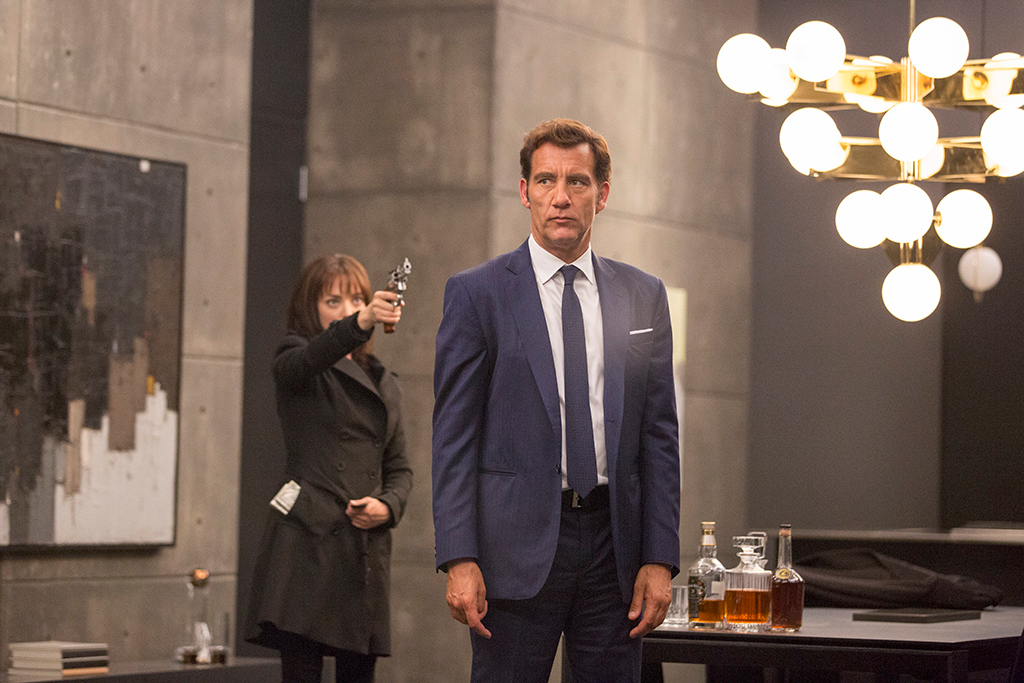
When it comes to these alternate reality films – the increasingly trendy Black Mirror, for example – what draws you to that kind of storytelling style, looking at what might happen?
AN: It’s not that I am drawn back to it, but that it’s coming at me. It is just so in my face that I have to say something about it.
Back to the creation of this movie: from the writing to the making, while watching it I realised how much it is a call for people to be aware, first of all about not spending too much time on social media, but also of how much of information we are giving away – while at the same time being a fantastic piece of entertainment.
AN: You can go to a movie and see different levels, yes, I agree. On one level it is a serial killer film – it is my first! If you are going for the ideas, you want something that is thought-provoking, and that is what this movie also wants to communicate.
There is, to me, a little bit of a horror added: this idea of having your eyes hacked, it’s pure horror and truly terrifying.
AN: it’s almost here. Right now, with your phone, you can do what is called augmented reality and put a dinosaur in the room, or through VR goggles. I have just taken a step further: it is in your head. That’s when we see actually some of Clive’s best stuff: he hates rats, and he found himself in a room full of rodents. But when he is acting, there is nothing there: the rats were put in it later. When the flat is suddenly on fire, I explained to Clive: “you’ll see it later, it will all look like it’s on fire”. But he has to act in nothing.
How did you find this experience, Clive?
CO: My concern is where to pitch it and I had to trust Andrew. With things like that, it is really about the way of pitching – and you don’t want to go too far. Everything has to feel like you are in it. It is literally how far, where is the level.
AN: One of the most haunting things for me is when Sal is looking at himself years later explaining to his wife how he took his eyes off their son and their son died. Everywhere he looks, he sees this ghost of himself. He recalls all his memories like that. We are almost doing it already: we cannot go anywhere without taking a photo of that, otherwise, it didn’t happen. This is just taking that it the logical/illogical step further.
The setting was fantastic. Can you tell us a bit more about where it was filmed and the very futuristic look of the film?
CO: The film was shot both in New York and Toronto. The building we used for the headquarters was a University that we sort of halted.
AN: The last scene, it is also very beautiful. It is New York, but it is not clichéd New York. I wanted to give this big-city-anywhere feeling.
It’s really great to be sitting here and talking about an original movie and not an adaptation. How exciting is it to bring something completely new to the big screen?
AN: It is a bit difficult nowadays because big studios in Hollywood right now are all interested in superheroes. So it is always good to get something new.
I know most actors tend to shy away from scripts with nudity and sex scenes. There are some very provocative sequences – how do you feel about that?
CO: I felt that is was in keeping with the whole style of the film, really. They were in accord with the whole world we were creating – I didn’t bulk or anything when I read the script.
Andrew, this is the second time you have worked with Amanda. What made you work with her again?
AN: A lot of the film is seen through the eyes, and no one has eyes as expressive as Amanda’s. There is also that sort of “go to the Hell”,”‘don’t look at me” expression. When she is waving a gun around, it gets your attention. It is an interesting character, because she needed the intelligence to play someone quite complex. A character that on one hand craves privacy but on the other craves intimacy as well. A lot of her victims, she slept with them, and you don’t know she is not the one who knocked them off. But she is an interesting character: she wants both these things. She is a bit like me: she is analogue.
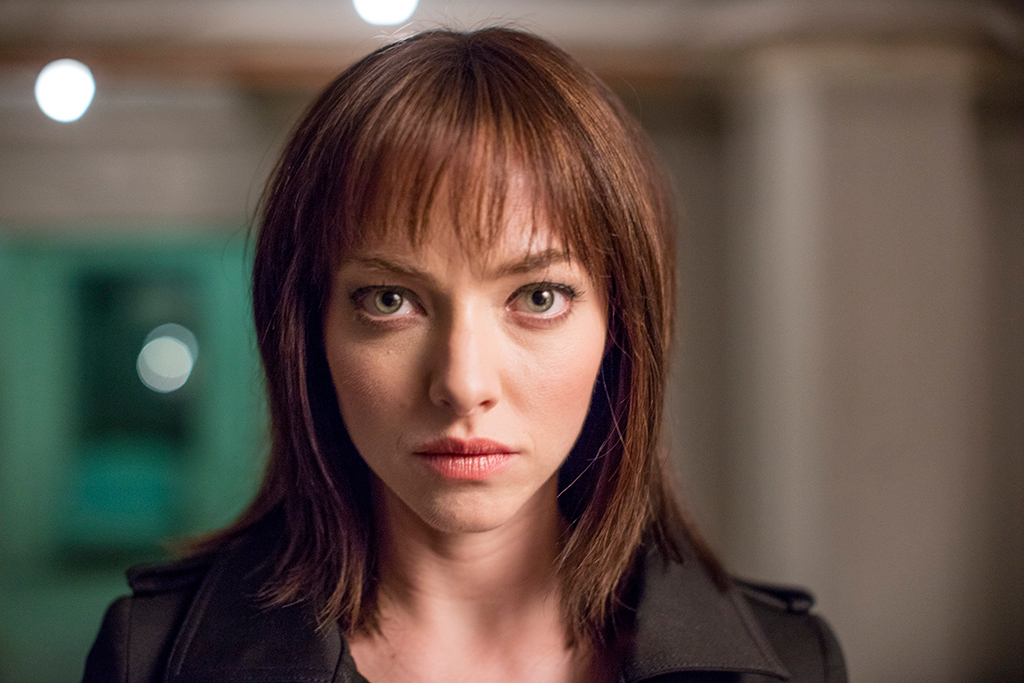
Anon is released on the same day on Sky and in movie theatres. Do you envision this is as the future, where all movie theatres are going to be sort of specialist?
AN: it’s a bit of a purist thing for me: I like to see it on a big screen, how it was intended. But with, I think, a movie as far back as Gattaca, most of you have seen it on the internet. When a movie has most of its life due to a video platform, that is how most people are going to be watching it. For me, it is all about the story: either it is going to work or not. Although, on a phone, it is going to be a bit hard for Anon, to read all those bios.
CO: I saw it projected tonight, and I do think it is a different experience. For films like this, beautifully shot, I want to have that immersive experience, just sitting in the cinema. But we cannot ignore the fact that a lot more people are watching on small monitors, on a plane, on the phone. But still, it is a different experience to watch it in the cinema or on a small screen. It saddens me that people’s viewing habits have changed and they go to the cinema less and less, because it doesn’t have the same impact.
Cristiana Ferrauti
Anon is released nationwide and on Sky Cinema on 11th May 2018.
Watch the trailer for Anon here:








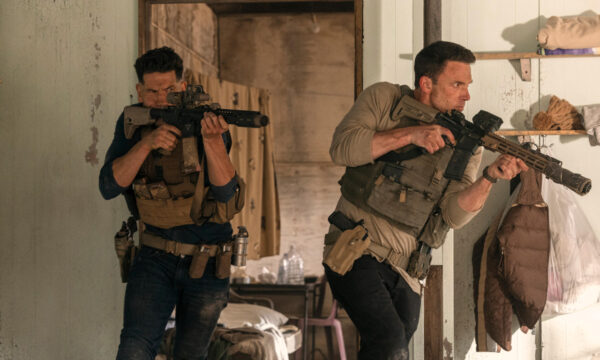
















Facebook
Twitter
Instagram
YouTube
RSS